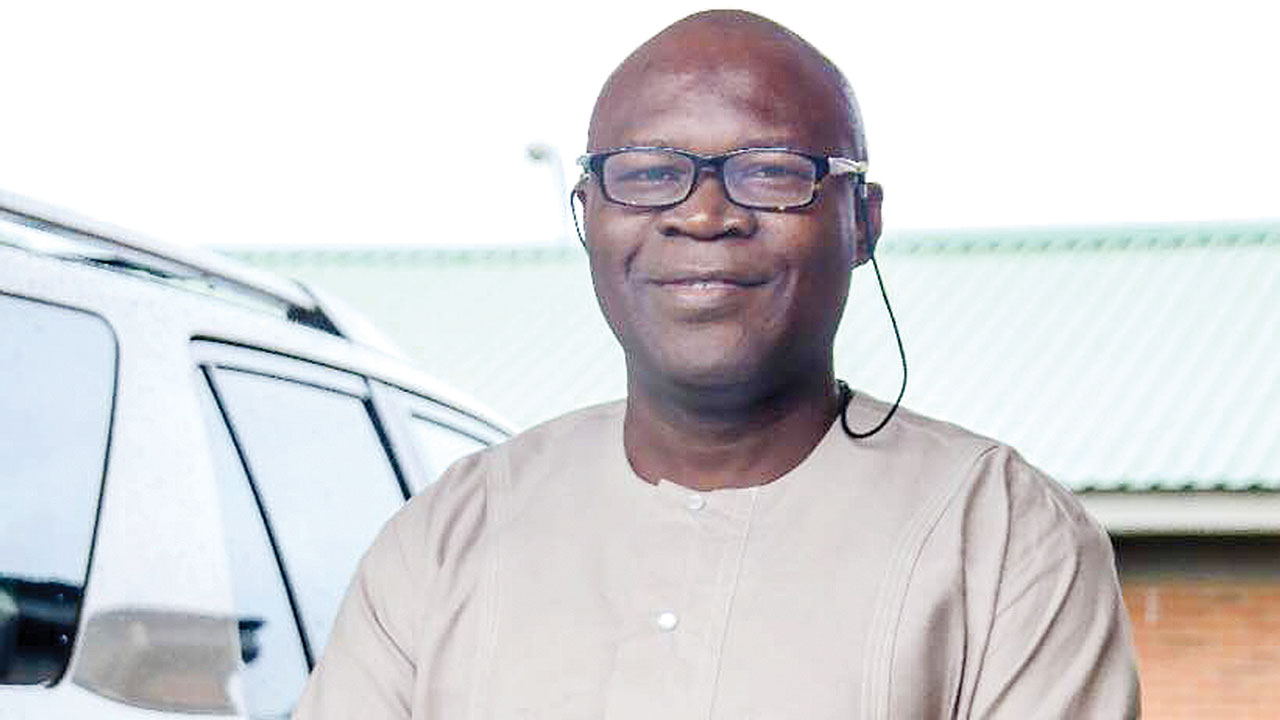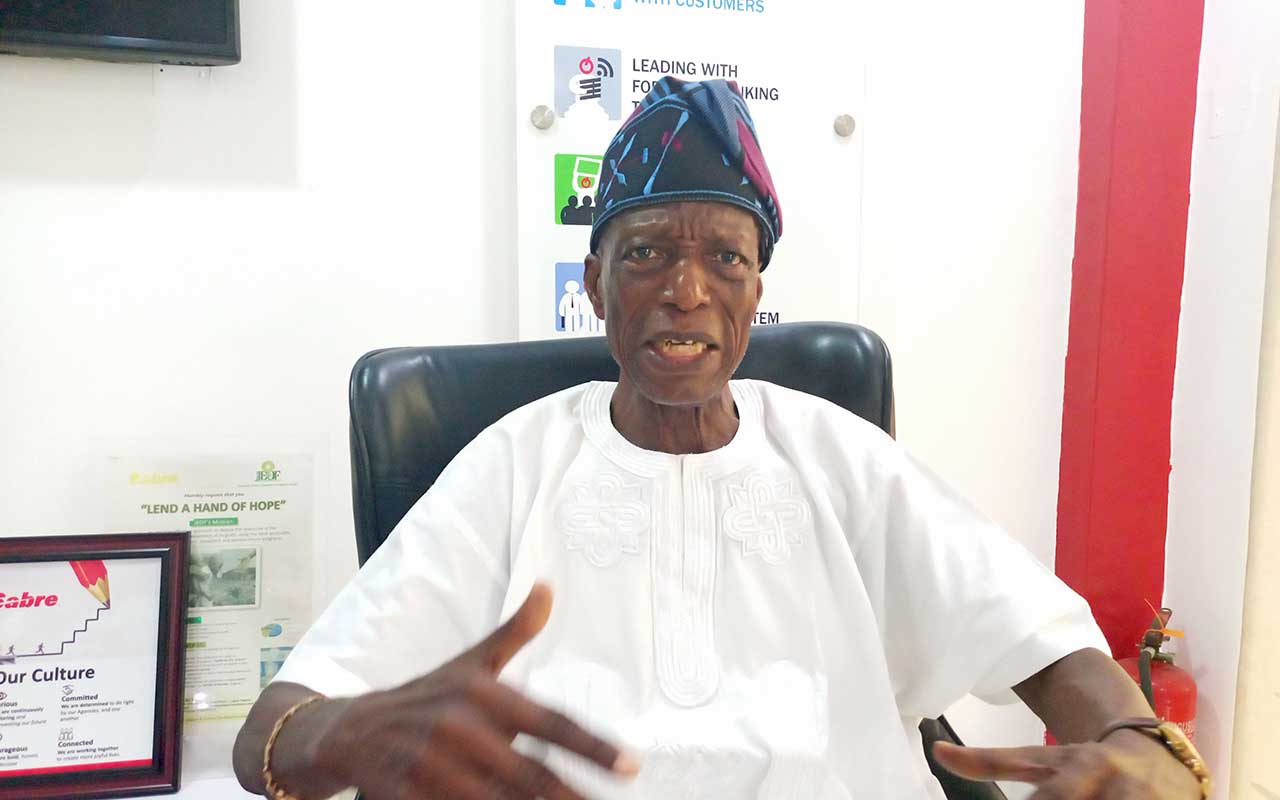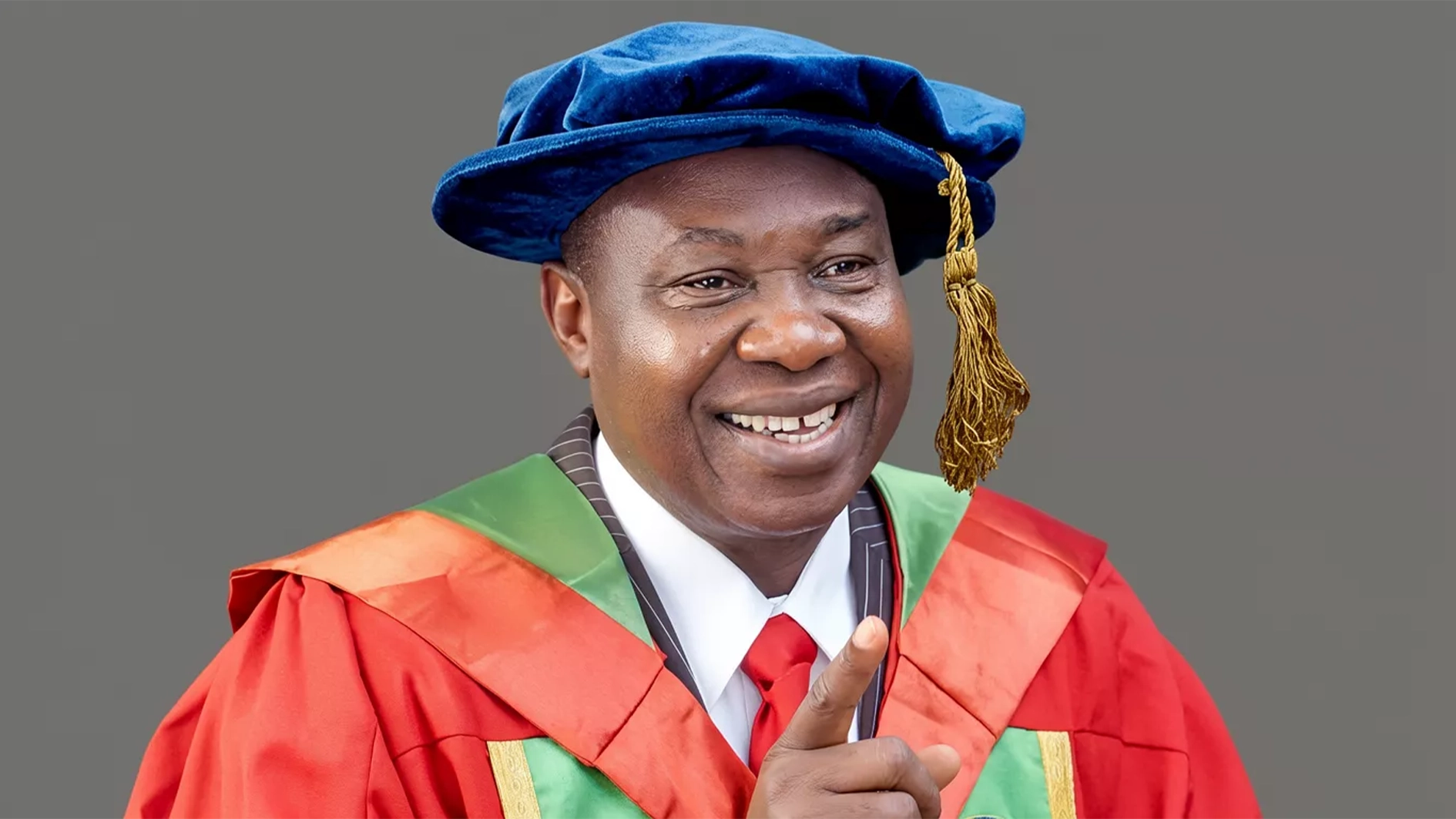
Osun State Commissioner for Commerce, Industry and Cooperatives, Ismaila Jayeoba-Alagbada, speaks on the activities of his ministry and indeed the government to touch the lives, bring governance closer to and empower the people, in fulfillment of Governor Rauf Aregbesola’s pact with them to banish poverty, hunger and unemployment, promote functional education and maintain peace in the State.
Are the activities in the state enough to make Osun State an investors’ destination and what are your selling points?
Before the advent of the present administration, Osun State was not a beehive of activities as it is today. For any state to develop industrially and commercially, there must be adequate infrastructure, and that is the foundation the present administration has laid. For example, the road from Olaiya was partially constructed by the last administration, but it is this government that fixed it from Gbongon junction to Akonda.
By the time we complete the road and bridge at Gbongon down to Osogbo, with streetlight, it is going to attract a lot of investors, because good road network and regular power supply are very important in the development of any economy. That is why you see many industrial layouts very close to the road, because of the inward movement of raw materials and outward movement of finished products.
We know investors would prefer that corridor; hence we are doing everything possible to complete the road network as soon as possible. If you move round the Ring Road we are constructing with Osogbo, there are already a lot of developments along that corridor and has attracted about five major investors. They want to do polyethylene construction and set up a tractor assembly plant and specifically requested for land opposite that road and we have allocated a land to them.
Osun is about the only state that has the national distribution of power, so all the electricity generated across the federation is sent to the state, from where it is distributed to the various states of the federation. That is why the state enjoys a minimum of 12-hour electricity daily. Some investors want to come here because of reasonable electricity supply and some companies are leaving Lagos for Osun because of this, including a major producer of steel from scraps/waste.
Is it because of this that the state appears not to be thinking of Independent Power Project (IPP)?
We are thinking of IPP; we are discussing seriously about it. We are working on some that would generate about 2000 megawatts.
What about rural roads for the evacuation of farm produce?
We have done a lot on rural roads, having realised the importance of such, especially as the state is more or less agrarian. Out of a population of about four to five million people, the civil servants are just about 50,000, so if you don’t care for the balance, how do they survive?
We have constructed at least 230 kilometres of rural roads across the state, very good roads, spread across 31 councils of the state. This is actually giving us an edge, because the farmers would have to move their products to the markets and the urban areas.
We are going to flag off another 300 kilometres by October this year. We are only waiting for the dry season to set in, because we cannot construct such roads during the rainy season.
Are there extractive industries that could utilise some of these produces from the rural areas?
We are thinking along the line of agro-allied industries, but we want to make sure there are enough raw materials to sustain them first. That is why we are focusing first on the construction of rural roads. To boost local production, this government has done a lot in the area of agro-financing, because most of the produces are perishable and wasting, as there are no warehouses to store them.
What are you doing to attract cottage industries to the state?
We have some cottage industries in the state, but we want to boost our agricultural products before attracting more, so that they can key into our agenda, because if they come and are unable to get the necessary raw materials, survival becomes an issue.
So, we are encouraging the farmers to produce in larger quantities through different methods, such as the quick intervention programme, where we encourage farmers to form cooperative societies. We started with N143million.
About cooperatives societies made up of at least 10 persons each have benefitted from the scheme We manage the societies in a way that if you need insecticides or money to weed your farm, we give you same and when it is time for harvesting, you harvest and give us our money back, so that it would go round.
In the second phase, we spent over N800million, in partnership with the Bank of Agriculture, with over 600 cooperative societies benefitting, after the confirmation of the existence of their farms and verification that they are doing well.
All these are incentives we are giving to farmers to encourage them, and it is ongoing. Now, they have formed an association called Association of QUIIP (Quick Impact Intervention Programme) Farmers.
In this part of the Southwest, we have peasant farmers and not large-scale farmers because some of them refused to be encouraged until this administration came into being. Most of them preferred to go for cassava, cocoyam and yam production, etc, rather than such crops as palm trees, cocoa trees, oranges, etc. They were concerned with what they would be feeding on before these crops mature in about four or five years. So, they went into pastoral farming pending when they would start getting income from the cash crops.
There were some of the issues this administration is addressing, encouraging the farmers to go back to farm and increase their production and ultimately, their income. That is why the issue of agro-allied industries is coming up gradually.
We have introduced a concept in the farming of cocoyam, which is very rich, but most farmers abandoned it. We have empowered the farmers, liaising with a professor in the University of Osun, Clement Adeboye, to train our farmers in the modern way of planting cocoyam.
This ministry then empowered the cocoyam off-takers by investing N32.5million to buy the harvested cocoyam from the farmers. Today, the harvested cocoyam are not even enough for the people to consume, as more people developed interest in it. We have now introduced one meal of cocoyam per week into the school feeding system, thereby creating for market for the farmers; hence more farmers are now planting cocoyam.
Are there Small and Medium Scale Enterprises (SMEs) in the state?
There are lots of them and we have done a lot to encourage more. We have a partnership with the Bank of Industry (BoI) and that was what led to the establishment of a branch of the bank in Osogbo, so that our people do not need to go to Akure, Ondo State, to access facilities.
Under the partnership, BoI contributed N250million, while the state contributed another N250million as loan facility to SMEs. Among the beneficiaries is Muye Oil, located in Dada Estate, which is into the manufacturing of engine for servicing of vehicles. We also have Casmo Soap located close to the state broadcasting corporation, which produces different types of soap.
Just recently, we had a partnership agreement with DFID, which has assisted Muye Oil in the area of black soap aggregators. They add value to it and make it possible to export to other West African countries. That has made the local soap producers to increase their market potentials.
We also have Top Steel, as well as Agu and Agu, manufacturers of nails and wire mesh, in addition to Olam (shoe manufacturers) and Kokorin funded from this BoI partnership.
There is the micro-credit scheme, which has benefitted about 47 cooperatives, some of which are into sawmills.
The state government has been able to resuscitate cocoa industries in Ede and recently, a Chinese investor promised to inject additional N10billion into agro-allied industry, particularly in cashew and cassava processing, which can earn us foreign exchange when exported.
To boost cocoa production, the government in the last five years has invested a lot of money and distributed at least five million cocoa trees to farmers free of charge.
The state government is also implementing some empowerment programmes, such as the Osun Micro-Credit Agency, which has so far given out about N3.5billion as soft loans to different people, who are repaying as at when due. The response has been encouraging.
The first N2billion given out was interest-free for the first one year, as the government shouldered the N185million interest on behalf of the beneficiaries, so that people can be gainfully employed. SMEs are entitled to a maximum of N3million and upon full repayment, the entrepreneur could be considered for another loan to keep the enterprise running.
The programme was launched on July 9, 2014 and 1,366 cooperative societies, 321 SMEs and 205 individuals have so far benefitted from it, with collaterals and guarantors. They are paying back and the loan is revolving.
In the transport sector, the state has facilitated 70 Toyota Hiace buses to members of the National Union of Road Transport Workers (NURTW) and Road Transport Employers Association of Nigeria (RTEAN) for inter-state transport to the tune of over N450 million at interest-free repayment option.
There is also one for intra-city transportation, which is called Korokpe, as well as our people involved in transportation in Abuja got 40 taxis (cars), costing over N200 million, with over 85 per cent performance in all cases.
The state government did insurance for all of them for about four years.
We introduced uniforms in our school, which are subsidised. It is our people selling clothes that supply the materials. They are given N100, 000 worth of clothes once they are able to pay an initial N10, 000, with the balance repaid later as they sell. It is another way of empowering our people.
The level of default, with the structures we put in place, is less than 10 per cent.
There is also a soft loan for women. About 18,220 women by 2015 and by last year, 23,945 had benefitted. Over N1.4billion had been disbursed as at July last year. The loan recovery rate for 2015 was 99.98 per cent.
Are these yielding the desired results?
Yes, they are yielding fruits. We still distributed more last year, because if you don’t encourage these farmers, there would be no raw materials for the hitherto moribund, but now reactivated cocoa factory, which currently produces about 20,000 tonnes of cocoa.
In that regard, have you thought of attracting confectionery industries to the state?
Of course, we are working on it. Before the end of next year, they would start producing chocolate in the state. There would be an industrial park for confectioneries in Osun State.
What value have all these added to the state, financially?
Value addition is a process; it does not come in a day, because definitely, it is going to lead to increase in employment generation, especially when the companies start operation to full capacity. It may be with the next government before we actually start reaping the benefits of these projects.
For instance, the cocoa factory will employ not less than 3,000 persons, and I am sure the Chinese investor can do it, having visited his factories in China myself.
The other companies I mentioned employ not less than 1,500 people directly, not to talk of those who are sustained indirectly. It means a lot of youths would be engaged and taken off the unemployment market.
There is a computer village in Ilesa, where they assemble computers and telephone handsets. In due course, they are going to assemble televisions and we recently won a contract from the Federal Government to make digital switch boxes. That will also employ some Osun indigenes.
What other incentives do you offer investors?
We have land, which is very critical and the government is not greedy. The moment an investor comes with the relevant documents and confirmation of investment, the government is ready to give him/her land and the Certificate of Occupancy (C of O) within one week.
We encourage and are ready to encourage investors to come because we know that their investment would reduce unemployment and boos commercial/economic activities in the state.
Multiple taxations often discourage investors. How are you tackling that?
We have tax laws and the state government is only entitled to collect Pay As You Earn (PAYE) and tax on business premises, while the federal government collects the company income tax and of course, Value Added Tax (VAT).
Outside these, there are virtually no other taxes. We don’t have tax collectors on our roads, because everything has been harmonised.
In this state, offenders, such as traffic offenders, don’t pay cash to the officials; they are booked and directed to where to make payments. The officials also have POS machines with them, so alternatively, the offender can pay instantly there and receive the alert to that effect and they get the receipt immediately.
To also boost investment, we have created parks, including the Nelson Mandela and Oladipo Parks, where people can relax. The place used to be a black spot, inhabited by criminal elements.
Looking at the monthly federal allocation, Osun is usually at the bottom. What is the state government doing to boost its revenue base, especially now that foreign exchange from crude sales is dwindling?
The government is really trying to increase its internally generated revenue (IGR). That is why we are engaging in all these landmark projects/infrastructure.
We have been able to increase the IGR from about N300million when we came to about N800million now, which is regular. People would be ready to pay their taxes if they can physically see what the government is doing for them. There is nowhere in Osun that the state government has not touched one way or the other.
The issue of standard gauge, what has it to do with commerce and how does it impact on revenue?
Abroad, hardly can you buy anything without measurement, using the standard gauge. But in Nigeria, you rarely see sellers using the gauge in the market, resulting in either the seller cheating the buyer or vice versa.
The 1964 Act of the Federal Government introduced standard weight and measure. You cannot buy certain items, such as cocoa, maize and other grains, etc without weight and measure, especially as most of these products are exported.
Most, if not all the things brought into the country are based on weight and measure, such as fish, cement, but we rarely use them for our exportable items, thereby cheating the farmers who cannot get value for what they produce, and of course, ourselves.
Each time we go to the Economic Council of the Federal Ministry of Trade and Investment, they will always tell us to go and implement weight and measure in our states. There is a department for that in the federal ministry.
There were, of course, some opposition to it, but with time, people have seen that it is in their best interest and they are gradually accepting it. In neighbouring Benin republic, you cannot buy anything without weight and measurement, be it apple, fish/turkey, etc.
You may have a carton of fish for instance, weighing the same thing even though they don’t have the same content, but at the end, nobody is cheated, instead of our people weighing the content with their hands, which can never be accurate. It enables sellers to measure and sell appropriately.
We are enforcing the law through persuasive approach. People come to the ministry regularly to purchase the scales and so far, we have sold not less than 40 per cent of what we have.
Can it not be manipulated?
We have a lot of people who go round to ensure compliance. We call then Osun Omoluabi. We have trained about 185 of them cut across the whole state, who move round the markets. If somebody is not satisfied with the quantity he/she bought, we have a depot in the market where they take their complaints to and the item is weighed and, if less than expected, these officials will follow the to the point of purchase and explanations sought.
There are sanctions for selling below the stipulated quantity. The first-time offender is penalized and the punishment is incremental, as stated in the law. When we introduced the concept, we first of all trained the people and most of them already knew about the concept before then. Majority of the traders and farmers don’t travel much again to make large-scale purchase; they use their phones to send money to the sellers, who will then send the goods to them.
We demonstrated it to them. I was in the market some four weeks ago. I picked different bowls of tomatoes being sold for the same price from different sellers. The three did not weigh the same; one was more by about 20 grammes, another less and only one was accurate.
If they are able to use it very well, they are the ones that would benefit, because they would not sell above the expected quantity. They are getting used to it gradually.
In all these, what is the level of cooperation with sister ministries involved?
It has been very cordial and wonderful. There is synergy towards achieving the same goal of this administration.We couldn’t have done and achieved these in isolation without the input of the other ministries, especially Finance, Agric, Works and Transport, Youth and Sports, Local Government, etc, all working under a cabinet committee.






